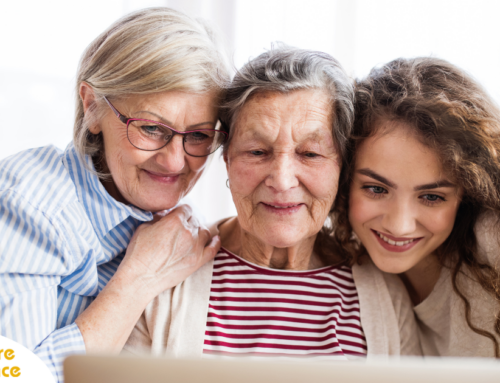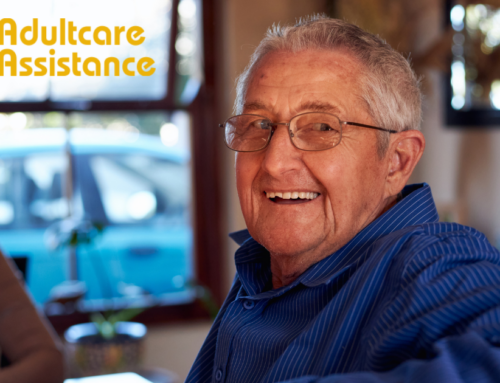According to a recent joint report from the National Alliance for Caregiving (NAC) and AARP, roughly 53 million Americans each year spend time caring for a friend, spouse, or another relative. The average informal caregiver also manages a household and a full or part-time job, while most care recipients are aged 65+. Although caring for family and friends is highly gratifying, it can also be physically and emotionally exhausting. If you currently find yourself in this situation, here’s how to care for an aging loved one without neglecting your own health.
Family Caregivers Face these Challenges
As the long day transition into weeks and months, the average family caregiver often faces these challenges:
- Neglecting their health
- Financial difficulties due to out-of-pocket expenditures
- Strained personal relationships
- Stress and fatigue
- Substance abuse
- Scheduling conflicts (work, children’s activities, etc.)
Along with these challenges, a caregiver might also deal with negative emotions like guilt, frustration, anxiety, hopelessness, and depression. As daily stressors start to mount up it can push even the most experienced family caregiver to the breaking point— inducing a clinic condition known as “caregiver stress.”
Do You Have Caregiver Stress?
In addition to mental health concerns like substance abuse, negative feelings, and social isolation, these are some of the physical warning signs of caregiver stress:
- Fatigue
- Irritability
- A weakened immune system
- Rapid weight gain or loss
- Digestive problems
- Frequent headaches
If allowed to persist, caregiver stress can affect the quality of life of both you and your care recipient.
Try these Self-Care Tips
If you’ve been trying to do too much for way too long, here are some healthy ways to stay refreshed:
Regular exercise
Regular exercise benefits you in so many ways, starting with the fact it’s a great stress reliever. Working out for at least 20 minutes several times a week will also promote a better night’s sleep, strengthen your immune system, and give you a more positive mental outlook. Some of the best cardio workouts for caregivers include walking, swimming, bicycling, or aerobics, while meditative forms of exercise like Yoga and Tai Chi are great for refreshing both body and mind.
Caregiver support group
Joining a caregiver support group is a simple way to connect with like-minded individuals who understand what you’re going through. As a reliable source of caregiving advice, support groups provide a forum where you can openly express your feelings and experiences without being judged.
Professional counseling
Speaking with a licensed therapist is another way to share your innermost thoughts without being criticized. Not only will your counselor be objective and a good listener, but they can also provide you with valuable insight that helps restore your peace of mind and sense of self-worth.
Caregiving journal
You can also confront negative feelings by recording them in a caregiving journal. Once you start a journal, use it as an opportunity to write down inspirational messages or positive thoughts too- like convincing your stubborn father to stop driving. Going back and reading those uplifting messages whenever you are having a bad day can do wonders for your self-confidence and mental outlook.
“Me” time
When caring for others, “me” time and personal relationships often get neglected. Reward your efforts by blocking off enough time each week for activities you enjoy. Pamper yourself with a spa day, shopping spree, or nice dinner out with friends. Or just spend a quiet evening curled up on the couch binge-watching your favorite TV shows. After all, you’ve earned it!
Respite care
When it’s time to take a well-deserved break, or “respite,” seek outside assistance from trusted sources like
- Friends, neighbors, or family members
- Community volunteers that work with the aging
- Adult daycare
- A professional respite caregiver from a licensed home care agency
Award-Winning In-Home Respite Care for Seniors in Arizona
Although it’s gratifying, caring for an aging loved one can sometimes be overwhelming. At Adultcare Assistance Homecare, we’d love to have an open dialogue with you about your needs and how we can help your loved one comfortably and affordably age in place. As a locally owned agency with a long track record of success, our highly trained caregivers can step in and provide your family with the care that’s needed.
Our home care services include respite care, companion care, medication reminders, senior transportation, light housekeeping, and even 24-hour, live-in assistance. To learn more about our award-winning services now or to get a FREE Home Care Assessment for a senior in Phoenix, Sun City, or Tucson, AZ, today, please visit Adultcare Assistance Homecare at: www.adultassistance.com.





